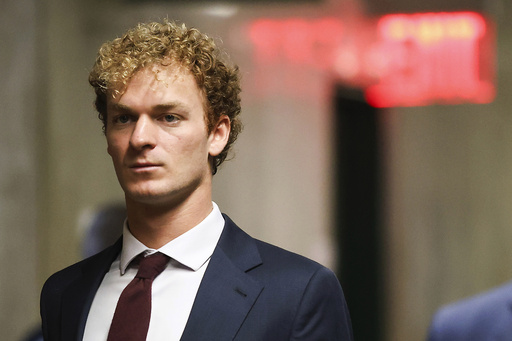NEW YORK — The former U.S. Marine, who was acquitted of criminal charges last month concerning the death of a man on a subway train in New York City, is now aiming to have a lawsuit filed by the victim’s father dismissed.
Daniel Penny’s attorney filed documents in court on Monday stating that Penny rejects the lawsuit’s assertions that he is responsible for civil damages. The lawsuit alleges that Penny’s use of a chokehold against Jordan Neely, who was acting erratically and shouting on a packed train on May 1, 2023, led to Neely’s demise.
Andre Zachery, the father of the deceased, filed the lawsuit prior to the jury clearing Penny of criminal charges, claiming the Long Island resident exhibited negligence, assault, and battery by maintaining a chokehold on his son for approximately six minutes.
In response, Penny’s lawyer, Steven Raiser, contended that “all injuries or damages” were a result of Neely’s own “culpable conduct, negligence, carelessness, and lack of care.” Raiser emphasized that Penny maintains his innocence and noted that the jury’s decision reflected a broader sentiment among New Yorkers, who feel entitled to protect themselves and others from unexpected violence.
Raiser committed to vigorously contesting the civil lawsuit initiated by Zachery, referring to it as ill-conceived, just as they did during the criminal trial.
Although Zachery’s legal team did not immediately respond to inquiries on Tuesday, they have previously indicated that civil cases have a lower burden of proof compared to criminal ones. In his lawsuit, Zachery requests unspecified damages and filed the case in state Supreme Court.
This incident has spurred a nationwide discussion, dividing opinions between those who view Penny as a hero for subduing a perceived threat and others who label him a vigilante for his actions against a Black man.
The jury in Manhattan ultimately found Penny not guilty of criminally negligent homicide, and the more severe manslaughter charge was dropped when the jury could not reach a consensus.
Penny, who had a four-year military career before pursuing architecture studies, chose not to testify during his trial. Following the jury’s decision, he spoke in an interview, sharing that he felt he was in a “very vulnerable position” during the encounter with Neely yet recognized the necessity to take action.



